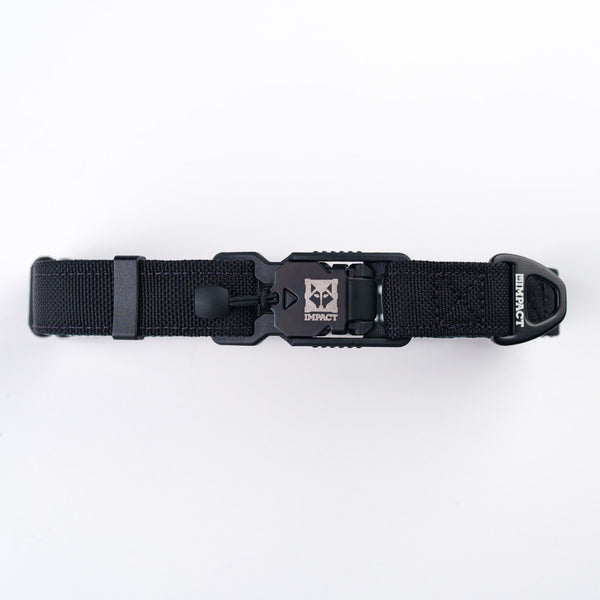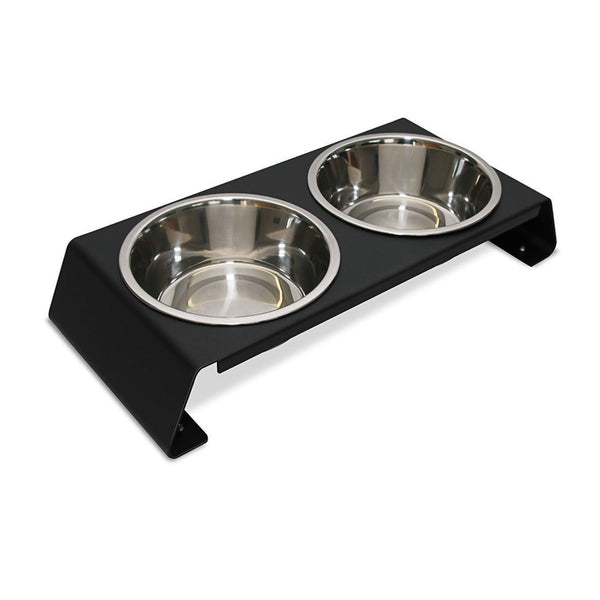
Nothing makes us feel more guilty than having to deny our dog a bite of our food. It would probably be much easier to ignore this feeling if dogs had never mastered the art of "puppy eyes." Once you own a dog, you have to disregard almost everything you've ever learned about "sharing is caring."
Although it's hard to ignore those heart-melting puppy eyes, as dog owners we have to put their health first. Dogs have a different digestive system from humans, and what we consider to be nutritious for us can be harmful or extremely dangerous for our fur friends.
While some human foods can be safe for dogs, there is plenty of food out there that constitutes genuine hazards for pets. If your dog is a "counter surfer" or a professional begger, keep a close eye on him when people food is around. It's better to be proactive than risk the possibility of an emergency trip to the vet. Here are a few foods you should never feed your dog:
Bacon and Fatty Meat

Bacon may seem like one of the healthier food you can give your dog (after all, it tastes so delicious) but it might well be one of the worst. In fact, not just bacon, but any food that is high in fats (including sausages, ham, fried fast foods, and ribs) can cause your dog to have diarrhea, vomiting and an upset stomach. On the extreme end of the scale, fatty foods can cause pancreatitis, which can be very fatal. For your dog’s safety, save the bacon for yourself.
Sugary food

Yeah, this shouldn't come as much of a surprise. Sugary foods are bad enough for humans, so giving them to your dog is nothing but a faux pas. Just like in humans, the effects of eating food with high sugar content can be grim and predictable in dogs too.
Dogs that are given sugary foods can suffer from diabetes, obesity and develop dental cavities. Keep your pup healthy —it's best if you check the ingredient label for human foods before giving your dog something to munch. Remember to keep your desserts out of reach, especially if your dog is a "counter surfer."
Grapes and Raisins

Although the real reasons have not been established yet, it has been proven that grapes and raisins can cause dogs to succumb to kidney failure. Any quantity can lead to severe negative reactions.
There are many well-documented stories of dogs dying after eating a small quantity of grapes. So, until more information behind their toxicity has been determined, it’s probably better to keep potentially poisonous foodstuffs away from your dogs.
Avocado

Certain parts of avocado are okay for your dog than others. The large avocado stone in particular, for example, is best avoided. The main problem here is that it can potentially block your dog’s gastrointestinal tract, and this can be life-threatening for your dog if surgery is done ASAP.
Avocados contain a fungicidal toxin — persin — which is problematic for different kinds of animals including rabbits, birds, and horses. Fortunately, dogs can be fairly resistant to persin, unless a huge portion of the avocado has been ingested. It's best to first consult your vet before you give your dog fleshly green fruits.
Salty food

Just like sugar, salty food can be detrimental to your pup’s health. Yes, you may be tempted to throw chips to your dog, but large quantities of salt can lead to sodium ion poisoning, seizures, high temperature, brain swelling, tremors, and depression.
Onions

Whether they are cooked, powdered, raw or dry —onions should always be kept out of reach of dogs. Onions and chives contain disulfides and sulfoxides that can kill your pooch’s red blood cells and cause anemia.
According to the American Kennel Club, a dog that weighs 20 kilograms can be extremely damaged just by 100 grams of onions.
Chocolate

Chocolates contain substances — theobromine and caffeine — that are too harmful to dogs, no matter the amount of ingesting. It’s usually emphasized that the darker the chocolate, the greater the risk, but that doesn’t necessarily mean that white chocolate is less harmful.
Giving a few ounces of white, brown or dark chocolate to your dogs could leave your dog with increased urination, diarrhea, a stimulated nervous system, high blood pressure, seizures, restlessness, and even death. Here is a list of the most dangerous to least dangerous forms of chocolate for dogs:
- Cocoa powder
- Unsweetened baker’s chocolate
- Semisweet chocolate
- Dark chocolate
- Milk chocolate
- White chocolate
If your dog has already eaten chocolate, before you ring your vet, you can use the “dog chocolate toxicity meter” created by PetMD to see how dangerous the amount of chocolate consumed can be.
Alcohol

Considering that alcohol has long and short-term negative impacts on humans, it should seem obvious that dogs shouldn’t be given a single drop of it. Because of a dog’s natural small size, it takes just a little beer, wine or liquor to cause serious damage to your dog’s health status.
If given to dogs, any alcoholic beverage can cause poor breathing, coma, diarrhea, vomiting, abnormal acidity and lack of coordination. So, if you have ever thought of sharing any alcoholic beverages with your dogs, think again.
Food containing Xylitol.

Food containing xylitol (a common food additive in the US) can be good for humans, but when it comes to dogs, it is better off avoided. Candy, toothpaste, sugar-free gum, and baked goods typically contain xylitol. When fed to dogs they can cause liver failure, seizures, and hypoglycemia (low blood sugar).
It only takes about 50 milligrams of xylitol to cause low blood sugar to a large dog breed. The higher the dose consumed, the higher the risk. Always have an emergency plan prepared for unexpected pet emergencies.
Coffee, Energy Drinks and Colas

Honestly, caffeine is something that we should be avoiding as humans as much as we can (though we are not willing to give up that morning coffee), so keeping it out of your dog’s diet should be given.
If you want to see your dog bubbly, give him something to play around with instead of caffeine. Any beverage — energy drinks, cocoa and colas — that contains caffeine should never ever be given to dogs. When it comes to caffeine, dogs appear to be more sensitive than humans. Depending on the amount of caffeine ingested, signs of restlessness, high blood pressure, vomiting, tremors, and elevated heart rate can be seen.
It can be difficult to turn down a begging pup. However, if you want your dog to have a prolonged life, it’s wise to make sure that you serve your dog nutritious food all the time. Avoiding these harmful foods can benefit your pup's healthy growth and development. There is a plethora of healthy dog treats, recipes, and treat alternatives available. Your fur friend can have fun trying new dog-friendly snacks!
Written by: G.C.
Photos: unsplash.com














